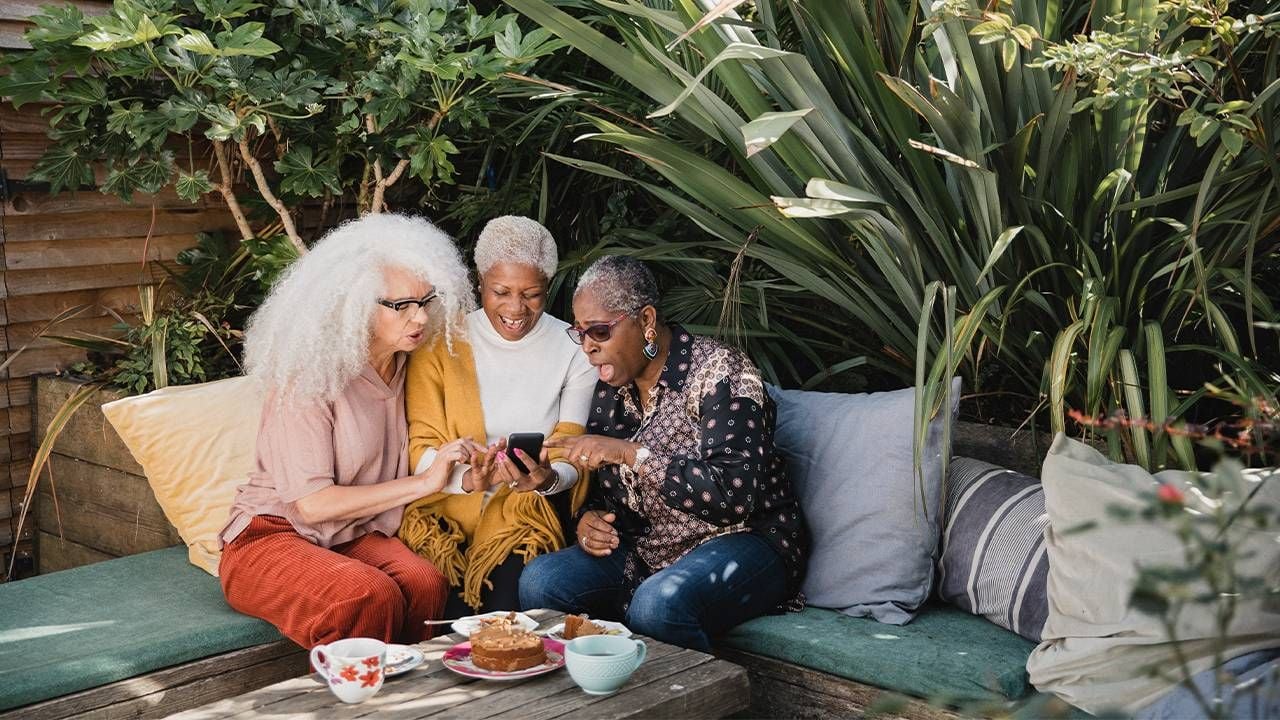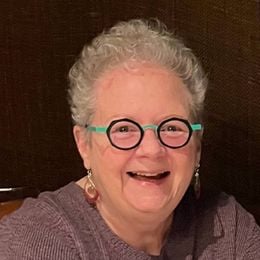Looking for a Healthy Boost? Make New Friends.
How ‘solo agers’ and others can expand their social circles
Your longtime pals know all your best stories, what you'll order when you eat together at the place you always go and how you feel about your relatives, current events and exercise classes on Zoom. Make new friends, and whole new worlds open — and that's good for you.

"We've all just gone through an unwanted national experiment on social isolation, and there's no better time than the present for increasing your social circle," said Dr. Eric Lenze, a geriatric psychiatrist and psychiatry professor at Washington University School of Medicine in St. Louis.
His research, funded by the National Institutes of Health, explores the effects of stress and social isolation on older adults and the benefits of social activities for increasing resilience.
"Older adults who report a higher level of social support have better emotional health, physical health and brain health, plus they have better cognitive functioning over time," Lenze said. "Initially, many older adults proved quite resilient at sheltering in place. But as it went along, it started to take a toll on mental and physical health."
"We've all just gone through an unwanted national experiment on social isolation, and there's no better time than the present for increasing your social circle."
That may be especially true for "solo agers." Some 27% of adults 60 and older in the U.S. live alone, and it's particularly important for these individuals to stay connected.
To ramp up social interactions, Lenze recommends all older adults get vaccinated against COVID-19 right away and then follow these steps:
- Write down any social networks you gave up during the pandemic and start reconnecting.
- Consider what you do online, including scheduling grocery deliveries, and go back to doing some of the activities in person.
- Think about all things you wished you could have done during the pandemic and start filling your schedule.
That last recommendation is known in psychology as "pleasant-events scheduling," and Lenze said it is one of the most effective treatments for depression.
"Fill up your calendar, even with things you never did before," he said. "There's nothing about aging that suggests you can't try new things."
More 'Intentionality' Is Required
Increasing your social interactions requires a deliberative effort, and Margit Novack, of Philadelphia, and the author of "Squint: Revisioning the Second Half of Life," understands that.
In response to our question on the Next Avenue Community Facebook page, she wrote, "Developing friends as an older woman requires more intentionality. When I was raising kids or at work, friendships developed naturally. Now, if I want deeper relationships than acquaintances, I need to create space/opportunity for that to happen."
Conventional wisdom suggests that we'll find new friends by joining a book club or knitting group — or starting one. Others choose to volunteer at a food bank, work on a political campaign or sign up for docent training at a museum or zoo.
"You get a two-fer if you join an exercise or yoga class or a meditation group because you get the physical and mental benefits of the activity plus the socialization," Lenze said. "Going to a dance class is a three-fer, because that's also cognitively stimulating."
When you move to a new city or town, opportunities immediately arise for making new friends. When Ginny Burch Reed moved from New Hampshire to Vermont, she found lots of opportunities to volunteer for local organizations. "For a person who isn't particularly 'social,'" she said, "I seem to be involved in quite a few activities and have met a lot of terrific folks."
Jana L Hill relocated from Washington, D.C. to Belize, where she quickly found like-minded people. Every Saturday, Hill and a half dozen other individuals walk the pups living in animal shelters.
The Value of Younger Friends
Charlotte Japp, a 2020 Next Avenue Influencer in Aging, makes a case for welcoming younger people into your inner circle. Japp is the founder of CIRKEL, a platform that connects workers ages 20 through 70+.
"More and more, we are siloed by age, and there are career and social consequences to that," Japp said. "We all go through very nuanced abstract experiences and it's good to talk to someone who has a different perspective. Life is so enriched by diversity, in every sense."
Kim Coryat, 65, agrees. "Several of my best friends are younger than my daughter, and socializing with them keeps me up on pop culture, current fashion and music," she said.
"I give thanks for several younger adults as friends as I enter retirement."
One of her best friends is 30 years her junior, and Coryat, who lives in Conway, Ark., takes vacations with a 75-year-old friend and the woman's 55-year-old daughter. Coryat retired early in 2020 from her job as an archivist at the William J. Clinton Presidential Library in Little Rock, Ark.
"I trained for that job with people thirty years younger than I was, and I didn't feel generational barriers," Coryat said. "Maybe that's because I went to college late, too. I didn't start until I was forty, after I retired from the military."
Coryat noted that she easily blended in with a younger crowd then because she didn't look her age. "Also, I was open to learning new things, going out to clubs and singing karaoke," she said. "I even joined a boot camp exercise program, where I learned as a woman of a certain age that jumping up and down was not my strong suit."
Find 'New Horizons'
Hart Edmonds, a Presbyterian pastor who lives in Hillsborough, N.C., also responded to our query on the Next Avenue Community Facebook page. "I give thanks for several younger adults as friends as I enter retirement," he wrote. "As a minister, I've been privileged to work with and learn from younger people who I find yearning for mentors and friendship with older adults. Too often our culture segments people by age and stage of life."
Anne Crowley also appreciates her younger friends, "for the energy they have and for reminding me it's important to have hope and keep working to make this world a better place."
Crowley, based in Washington, D.C., added that she has expanded her circle by starting a group for women "in or approaching midlife who want to make these years the best of their lives" and "by seeing a lot of live music and being friendly to people I meet at shows."
Steve Trickler of Scottsbluff, Neb., is in his 60s, and he's noticed many people his age are starting to slow down. "Maintaining ties with my younger friends allows me to stay more active," he wrote. "Plus, they are more adventuresome, more willing to try new things, go places. They are more in tune with literature and music — all of which excites me and keeps me enthused. Staying young at heart is about challenging yourself and finding new horizons to excite you and energize you."
Making new friends may help you do just that.


